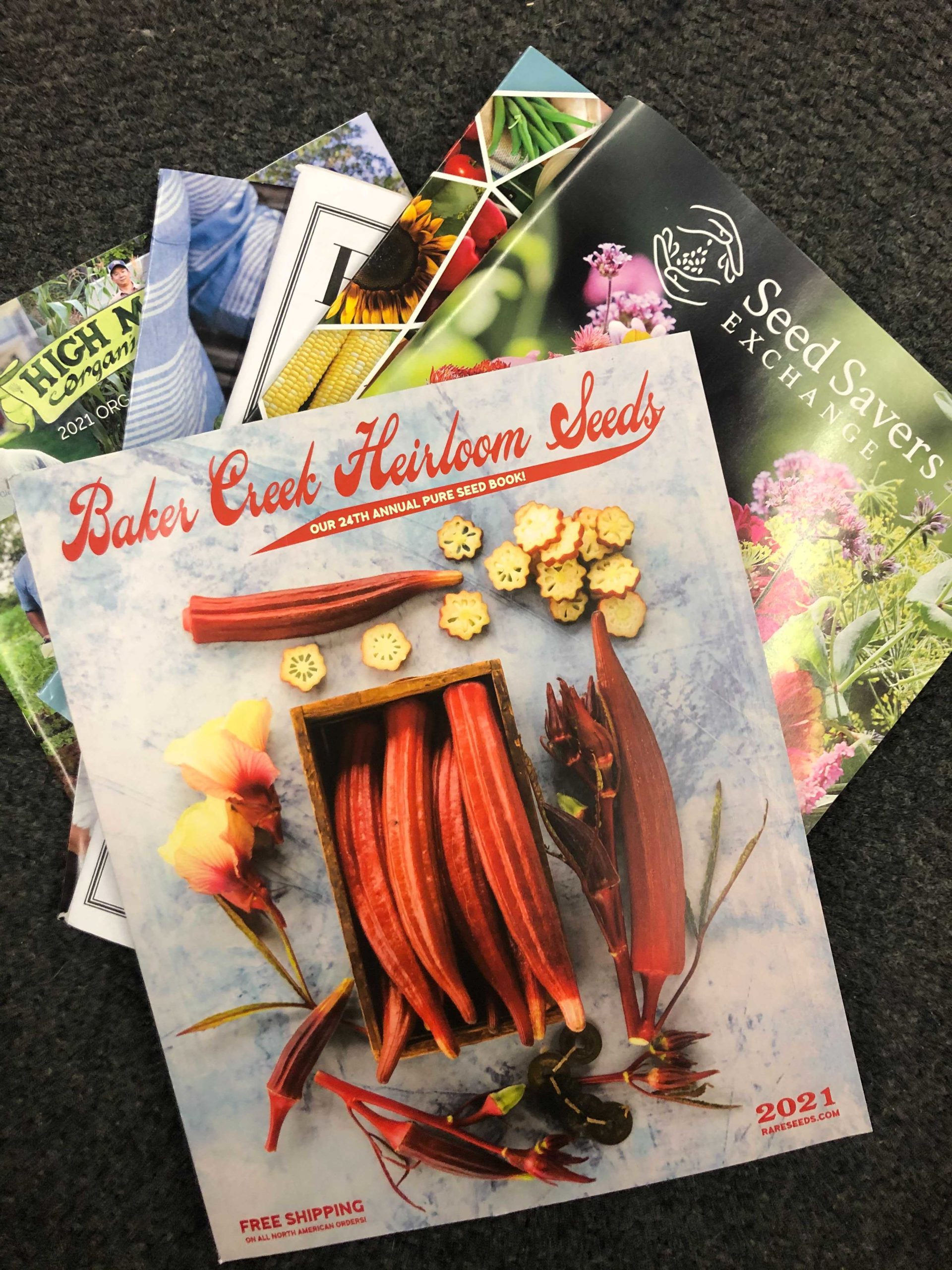By Judy Elliot, Senior Education Specialist
As daylight hours lengthen and thoughts turn to the upcoming growing season, it’s a good idea to be practical about gardening expectations; with the myriad of seed catalogs available, either as online resources or ‘dream books’, it’s easy to get overwhelmed or overzealous in picking out your next season’s seeds.
Whenever possible, DUG recommends locally purchasing seeds and/or transplants or ‘growing your own’. However, this year, like last, many seed companies are experiencing delays processing seed orders due to increased demand.
A reliable seed supplier (free catalog & online) is: Johnny’s Selected Seeds. Metro Denver nurseries such as Tagawas, Echters, and Southwest Gardens also have a good supply of seeds for the ‘2021’ growing season. Transplants and ‘tubers’ for cool season crops, such as onions, potatoes, asparagus, broccoli, cabbage, cauliflower and kale are typically available beginning in early – mid March. You can also apply for seeds and seedlings through DUG’s Grow a Garden program before January 31st.
Pro Tip: Check your current seed packets each year to see if seeds stored from prior years are viable (i.e.will they germinate & begin to grow).
To do this:
- Tear off several sheets of paper towels, stacking 2 together
- Moisten well with a misting or spray bottle
- Across the top of the paper towel, evenly space 10 seeds of the specific variety you are testing
- Carefully roll up the paper towel & seeds, place in a plastic sack and leave in a cool, dry place
- Each day, open the sack, unroll the towels & carefully blow on the seeds to surround them with carbon dioxide (which promotes germination)
- Repeat above process each day
Note the first day you see the seed coat split & baby root emerge. At the end of 10 days, if 7 or more seeds germinate, you are safe to utilize the seed source for growing. (70% or greater germination rate is preferred).
Of note, onions, leeks, green onions and lettuce are some of the seeds that are best purchased ‘fresh’ each year.

